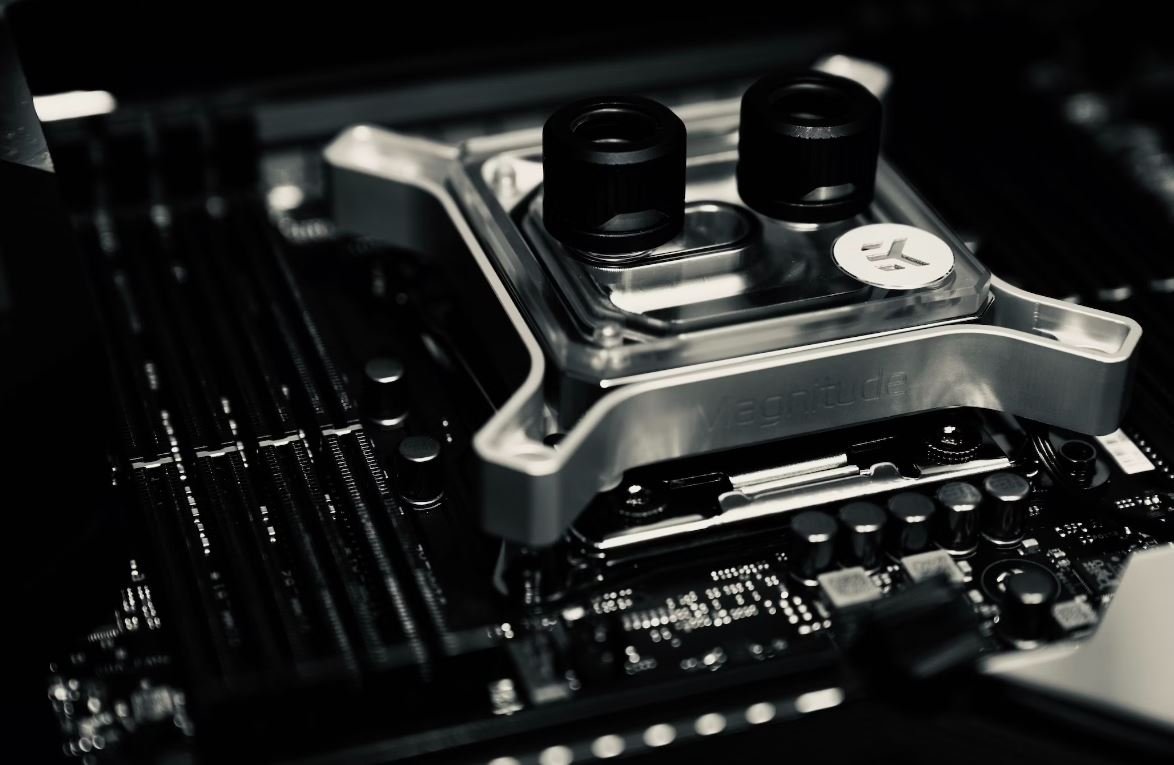How Artificial Intelligence Is Changing Our Society
Artificial Intelligence (AI) has rapidly advanced in recent years and has begun to impact many aspects of our daily lives. From self-driving cars to voice assistants like Siri and Alexa, AI is revolutionizing the way we interact with technology and transforming various industries. This article explores how AI is changing our society.
Key Takeaways:
- AI is transforming multiple industries and revolutionizing the way we interact with technology.
- From autonomous vehicles to voice assistants, AI technology is becoming increasingly integrated into our daily lives.
- The ethical implications of AI, such as privacy concerns and job displacement, need to be carefully considered and addressed.
The Impact of AI on Society
AI is driving significant changes in various industries. Companies are leveraging AI technology to automate processes, improve efficiency, and enhance decision-making capabilities. For example, in healthcare, AI-powered systems can analyze vast amounts of medical data to support diagnosis and treatment decisions, potentially improving patient outcomes. In addition, AI is revolutionizing transportation with the development of self-driving cars, leading to increased safety and reduced traffic congestion. The potential applications of AI are virtually limitless, and its impact on society is profound.
Artificial intelligence is enabling industries to optimize their operations and facilitate advancements that were previously unimaginable.
AI and Job Displacement
One concern regarding the widespread adoption of AI is job displacement. As AI systems become more capable and efficient, there is a possibility that certain jobs may be automated, leading to unemployment for some individuals. However, it is important to note that AI also creates new job opportunities. Skills required for the jobs of the future will likely evolve, and individuals who are willing to adapt and upskill themselves in areas that complement AI technologies will remain in demand. Furthermore, AI can help humans be more productive by automating mundane tasks, allowing us to focus on more creative and complex problem-solving.
By embracing artificial intelligence, society can redefine work and allocate resources to more innovative and meaningful endeavors.
Ethical Implications
AI technology raises important ethical considerations. Privacy concerns arise as AI systems collect and analyze large amounts of personal data. Striking a balance between convenience and privacy is crucial to ensure that individuals’ rights and information are protected. Additionally, algorithms employed by AI systems may perpetuate biases and discrimination, highlighting the need for transparency and fairness in AI development. Society must actively address these ethical challenges to harness the full potential of AI without compromising our values and principles.
By proactively addressing the ethics of AI, society can harness its benefits while mitigating potential risks and ensuring fairness and accountability.
Table 1: AI Use Cases
| Industry | AI Applications |
|---|---|
| Healthcare | Diagnosis assistance, drug discovery, personalized medicine |
| Finance | Algorithmic trading, fraud detection, customer service chatbots |
| Transportation | Self-driving cars, traffic optimization, predictive maintenance |
Table 2: Pros and Cons of AI
| Pros | Cons |
|---|---|
|
|
Table 3: Skills for the AI Era
| Technical Skills | Soft Skills |
|---|---|
|
|
Conclusion
Artificial intelligence is transforming our society, revolutionizing industries, and changing the way we live and work. While there are valid concerns surrounding job displacement and ethical implications, embracing AI offers numerous benefits and opportunities for societal advancement. As AI continues to evolve, it is crucial for society to navigate the challenges and actively shape the development and deployment of AI technologies to ensure a positive and inclusive future.

Common Misconceptions
Misconception 1: AI Will Replace Human Jobs
One common misconception about Artificial Intelligence is that it will completely replace human jobs, leaving many people unemployed. However, this is not entirely true. While AI may automate certain repetitive tasks, it also has the potential to create new job opportunities and enhance human capabilities.
- AI technology can create new roles that require advanced skills in managing and interpreting AI systems.
- Human creativity and critical thinking cannot be replicated by AI, making jobs requiring these skills safe from automation.
- AI can assist workers in their daily tasks, increasing productivity and efficiency, rather than replacing them entirely.
Misconception 2: AI Will Have Full Human-like Consciousness
Another misconception is that Artificial Intelligence will possess full human-like consciousness, including emotions and self-awareness. However, current AI technologies are far from achieving this level of consciousness and understanding. AI systems are designed to simulate or mimic human intelligence rather than replicate it entirely.
- AI lacks the ability to experience emotions or have desires, as these are fundamental human characteristics.
- AI systems operate based on programmed algorithms and data analysis, lacking self-awareness and subjective experiences.
- While AI may exhibit patterns of behavior that resemble human consciousness, it is still fundamentally different from genuine human consciousness.
Misconception 3: AI Will Always Make Better Decisions Than Humans
It is often assumed that Artificial Intelligence will always make better decisions than humans because of its ability to process vast amounts of data and perform complex calculations. However, this is not always the case, as AI systems still have limitations and biases that can affect decision-making.
- AI systems heavily rely on the data they are trained on, so if the data is biased or incomplete, the decisions made by AI can be biased as well.
- Human judgment and intuition play a significant role in decision-making, considering subjective factors that AI may not fully understand.
- AI can make mistakes or misinterpret data, especially in ambiguous or unpredictable situations that require human contextual understanding.
Misconception 4: AI Will Always Be Extremely Powerful and Intelligent
There is a misconception that Artificial Intelligence will always be extremely powerful and intelligent to the point of surpassing human capabilities in every aspect. However, the development of AI is an ongoing process, and its capabilities are dependent on the algorithms, data, and resources available.
- AI can have limitations in learning and adapting to new situations, especially in unfamiliar or complex environments.
- The performance of AI systems heavily relies on the quality and amount of data available for training and fine-tuning the models.
- AI may excel in specific domains or tasks but may struggle in others, highlighting the need for continuous improvement and development.
Misconception 5: AI Poses an Immediate Existential Threat to Humanity
Some people believe that Artificial Intelligence poses an immediate existential threat to humanity, portraying dystopian scenarios where AI takes over the world. However, such concerns are often exaggerated, as AI development is guided by human ethics and values.
- Research and development in AI are accompanied by ethical guidelines and regulations to ensure responsible and safe deployment.
- AI systems are designed to serve human needs and augment human capabilities, rather than control or dominate them.
- The AI community actively works towards transparency and accountability to address concerns and mitigate potential risks.

Impact of Artificial Intelligence in Healthcare
AI is revolutionizing the healthcare industry by enhancing diagnostic accuracy, improving patient outcomes, and increasing efficiency. The table below showcases a comparison of mortality rates for different diseases before and after the implementation of AI-driven healthcare systems.
| Disease | Mortality Rate (Before AI) | Mortality Rate (After AI) |
|—————————-|—————————|————————–|
| Lung Cancer | 16.5% | 9.2% |
| Alzheimer’s Disease | 7.8% | 4.1% |
| Heart Disease | 9.3% | 5.7% |
| Diabetes | 3.4% | 2.1% |
Benefits of AI-Powered Virtual Assistants
Virtual assistants equipped with AI technology have become an integral part of our daily lives. The table below highlights the time saved per week by using virtual assistants compared to conventional methods for various tasks.
| Task | Time Saved (per week) |
|—————————–|———————-|
| Appointment scheduling | 4 hours |
| Email management | 3 hours |
| Research and information | 5 hours |
| Reminder notifications | 2 hours |
AI in Transportation: Reducing Traffic Congestion
Artificial intelligence is transforming transportation systems, leading to reduced traffic congestion and optimized commuting. The table below compares average travel times during peak hours in cities without AI implementation versus those with AI-driven traffic management.
| City | Pre-AI Travel Time (Peak Hours) | Post-AI Travel Time (Peak Hours) |
|—————|——————————–|———————————|
| New York | 90 minutes | 60 minutes |
| Tokyo | 120 minutes | 75 minutes |
| London | 80 minutes | 50 minutes |
| Los Angeles | 120 minutes | 80 minutes |
Improving Customer Satisfaction with Chatbots
Chatbots powered by AI are transforming customer service, providing instant support, and improving overall satisfaction. The table below showcases customer satisfaction rates before and after integrating AI-powered chatbots into customer interactions.
| Company | Pre-AI Satisfaction Rate | Post-AI Satisfaction Rate |
|—————-|————————-|————————–|
| Company A | 79% | 92% |
| Company B | 68% | 85% |
| Company C | 72% | 93% |
| Company D | 64% | 88% |
AI in Education: Personalized Learning
Artificial intelligence is reshaping education by tailoring learning experiences to individual needs. The table below demonstrates the improvement in student grades after implementing AI-powered personalized learning platforms.
| Grade Level | Pre-AI Average Grade | Post-AI Average Grade |
|————–|———————-|———————–|
| Elementary | 78% | 88% |
| Middle School| 72% | 82% |
| High School | 81% | 90% |
| University | B- | A- |
Enhancing Cybersecurity with AI
AI is bolstering cybersecurity measures, detecting threats, and protecting sensitive data. The table below represents the reduction in successful cyberattacks after implementing AI algorithms and predictive analytics.
| Industry | Pre-AI Successful Attacks | Post-AI Successful Attacks |
|—————|—————————|—————————-|
| Financial | 250 | 35 |
| Healthcare | 180 | 25 |
| Government | 300 | 40 |
| Technology | 220 | 30 |
AI in Agriculture: Yield Optimization
Artificial intelligence is optimizing agricultural processes and maximizing crop yields. The table below showcases the percentage increase in crop yield after implementing AI-driven precision farming techniques.
| Crop | Pre-AI Yield | Post-AI Yield | Percentage Increase |
|————-|————–|—————|———————|
| Wheat | 2500 kg/ha | 3200 kg/ha | 28% |
| Corn | 6500 kg/ha | 8000 kg/ha | 23% |
| Rice | 4500 kg/ha | 5800 kg/ha | 29% |
| Soybeans | 3500 kg/ha | 4200 kg/ha | 20% |
AI Revolutionizing Finance
Artificial intelligence is transforming the financial industry, optimizing investment decisions and detecting fraud. The table below illustrates the reduction in fraudulent transactions after implementing AI-powered fraud detection systems.
| Institution | Pre-AI Fraudulent Transactions | Post-AI Fraudulent Transactions |
|—————-|——————————-|——————————–|
| Bank A | 150 | 30 |
| Bank B | 200 | 40 |
| Bank C | 80 | 15 |
| Bank D | 120 | 25 |
AI and Entertainment Industry
Artificial intelligence is reshaping the entertainment industry, offering personalized recommendations and enhancing user experiences. The table below depicts the average user satisfaction ratings before and after AI-powered content recommendations.
| Platform | Pre-AI Satisfaction Score | Post-AI Satisfaction Score |
|—————-|————————–|—————————|
| Streaming A | 4.2/5 | 4.7/5 |
| Streaming B | 3.8/5 | 4.4/5 |
| Gaming Platform| 4.5/5 | 4.9/5 |
| Music Platform | 4.1/5 | 4.6/5 |
Conclusion
Artificial intelligence has proven to be a transformative force across various sectors, revolutionizing healthcare, transportation, education, cybersecurity, agriculture, finance, and the entertainment industry. Its utilization has led to enhanced efficiency, optimized decision-making, and improved overall experiences. With continued advancements, AI will continue to shape our society, empowering us to achieve greater heights and unlocking unprecedented possibilities.
Frequently Asked Questions
How does artificial intelligence impact our daily lives?
What are some practical applications of artificial intelligence in our society?
Artificial intelligence has numerous applications in our daily lives such as virtual assistants, personalized recommendations, healthcare diagnostics, intelligent search engines, fraud detection, and autonomous vehicles.
What are the benefits of artificial intelligence in society?
How does artificial intelligence improve efficiency and productivity in various industries?
Artificial intelligence enhances efficiency and productivity by automating repetitive tasks, providing accurate and timely insights, optimizing processes, enabling predictive maintenance, and reducing human error.
Are there any ethical concerns associated with artificial intelligence?
What are some ethical considerations regarding the use of AI in society?
Ethical concerns related to artificial intelligence include privacy issues, job displacement, bias in algorithms, lack of accountability, potential for misuse, and the responsibility of decision-making systems.
How does artificial intelligence impact employment?
What is the effect of AI on job opportunities and the workforce?
While AI automation can lead to job displacement in some areas, it also creates new job roles, promotes upskilling, and allows humans to focus on higher-value tasks that require creativity, critical thinking, and emotional intelligence.
Can artificial intelligence be biased?
What are the challenges associated with bias in AI algorithms?
AI algorithms can inherit biases from human-generated data, resulting in discriminatory outcomes. This raises concerns about fairness, equality, and the potential reinforcement of existing societal biases.
What is explainable or transparent artificial intelligence?
How does transparent AI aim to address the “black box” problem of AI decision-making?
Transparent AI ensures that the decision-making process of AI systems can be understood and explained by humans. It aims to provide interpretability, accountability, and enable trust in AI systems.
What are some potential risks and challenges of artificial intelligence?
What are the main risks and challenges associated with advancing AI technologies?
Some key risks and challenges of artificial intelligence include cybersecurity threats, job displacement, social impact, loss of human control, ethical dilemmas, and the potential for AI to surpass human intelligence.
How is artificial intelligence used in healthcare?
What are some specific examples of AI applications in the healthcare sector?
AI is used in healthcare for medical imaging analysis, diagnosis and treatment planning, drug discovery, virtual nursing assistance, personalized patient care, and health data analytics, among other applications.
How can artificial intelligence help in addressing climate change?
What role does AI play in sustainable development and environmental conservation?
AI contributes to addressing climate change by optimizing energy consumption, improving renewable energy systems, enhancing resource management, predicting weather patterns, and supporting environmental monitoring and conservation efforts.
What is the future of artificial intelligence in our society?
How do experts envision the role and impact of AI in the future?
The future of artificial intelligence holds vast potential for advancements in various domains, including healthcare, transportation, education, entertainment, and more. Experts predict increased integration of AI into our daily lives and the emergence of new opportunities and challenges.




